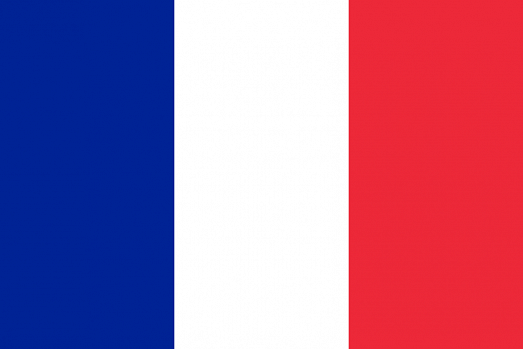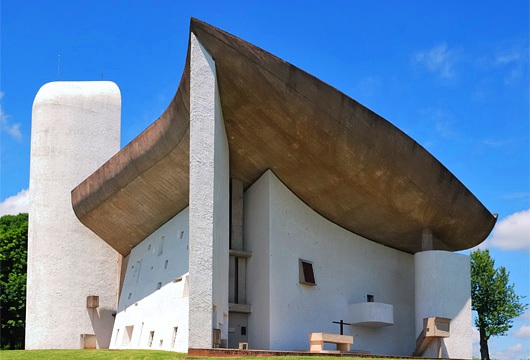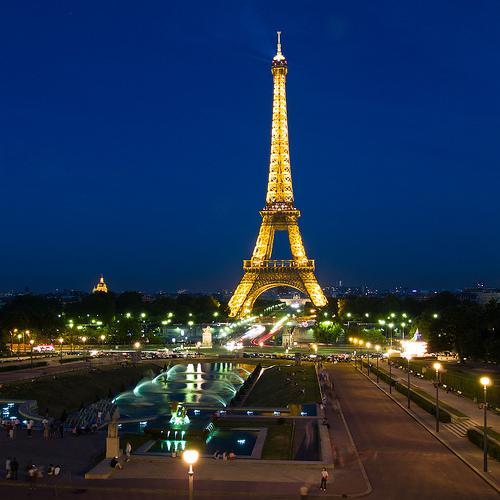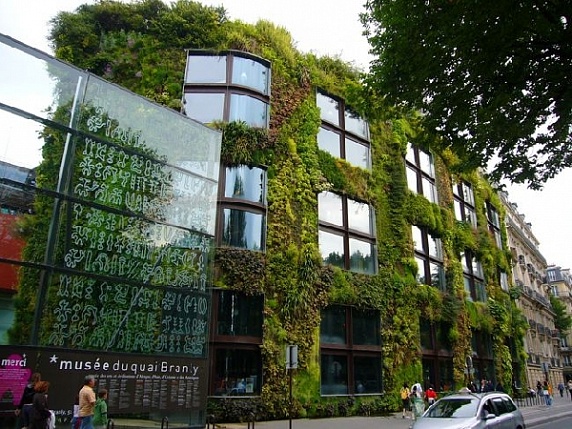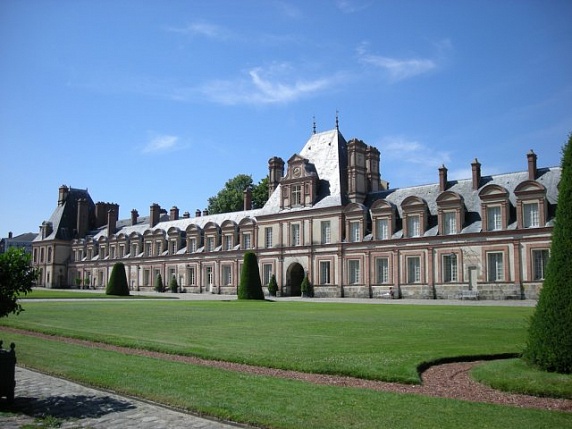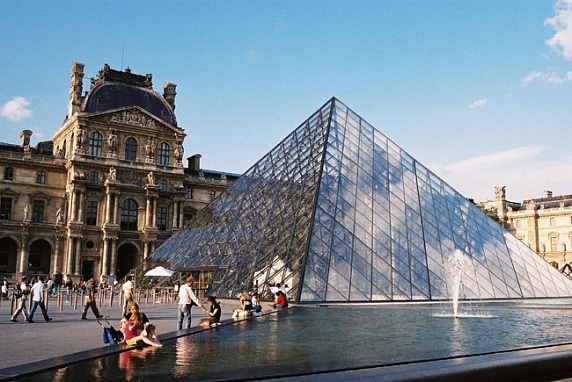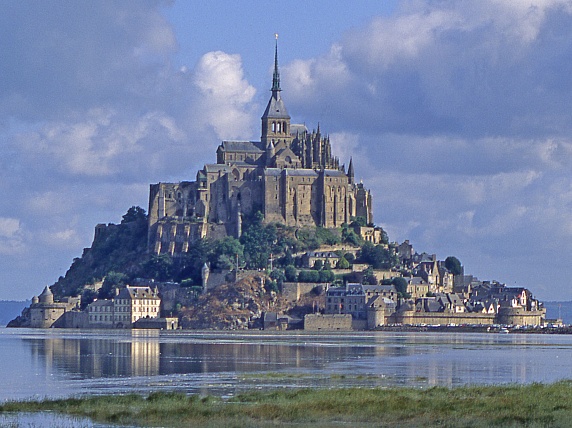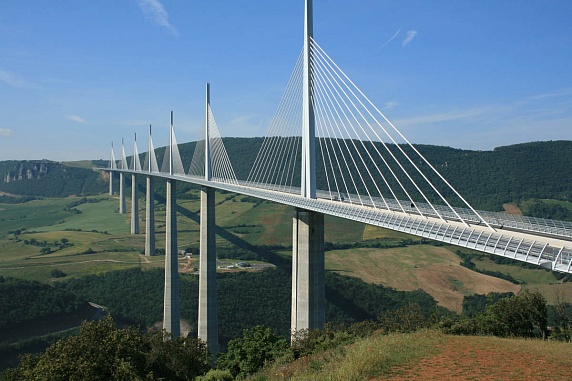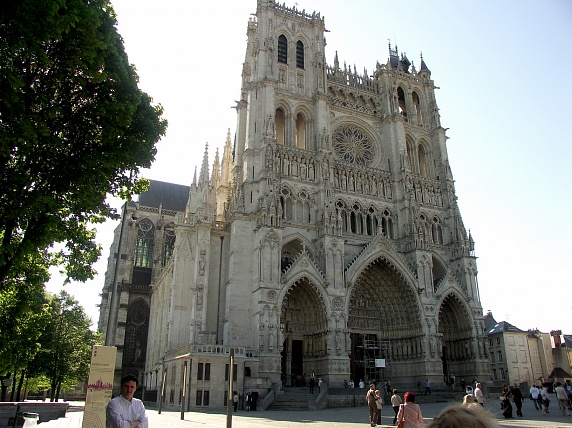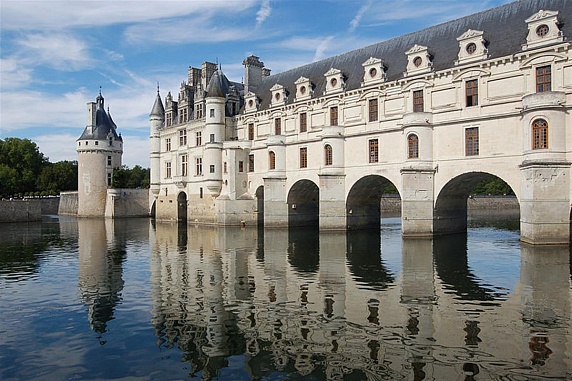 Французская Республика
Французская Республика
Article of Russian Foreign Minister Sergey Lavrov “Russia-France, Russia-Europe: partnership horizons” in a special Russian-French edition of the magazine “Russia in Global Affairs”
The President of France Francois Hollande has recently visited Moscow at the invitation of the President Vladimir Putin. Substantial negotiations of the leaders confirmed the special, privileged nature of relations between the two countries.
French-Russian relations root back to many centuries of history. We had many different situations in our bilateral relations – our countries were enemies and allies at the battlefield. However, the main thing always was and still is entwinement of historical and human fates, mutual sincere sympathy and mutual respect. We cannot forget about being brothers in arms in periods of military catastrophes, that shook the European continent in the last century, how French militaries paraded on the Red Square in 2010 as participants of the Victory Parade, when celebrating 65 years of ending of the Second World War.
In modern conditions, when ideological confrontation has stopped, Russia and France entered into the level of strategic partnership. It is noteworthy that the re-elected President of Russia included Paris into the route of his first trip abroad.
We have managed to do a lot recently to satiate our cooperation with ambitious and large-scale joint projects in different fields. Last year, on the background of problems in the global economy and crisis conditions in the Euro zone, the turnover of goods slightly reduced compared to the "record" 2011, when it reached 28.1 billion US dollars. Our task is not only to return to already reached limits, but also to exceed them in the nearest time.
We welcome the ongoing flow of French investments into our domestic economy, the amount of which exceeded 9 billion Euro. More than 470 companies with French capital represented in almost all spheres are operating in the Russian market.
We actively cooperate in fuel and energy sector, aircraft and car industry, in the field of railway transport, in the implementation of large-scale infrastructure projects, pharmaceuticals, food industry. We are in search of opportunities for joint entry to the markets of third countries. The joint programme of action in the interests of partnership for modernisation signed in November 2011 is being implemented.
Some of our largest projects: participation in construction of gas pipelines "Nord Stream" and "South Stream", the programme of launching "Soyuz" launch vehicle from Guiana Space Centre, the joint development of a passenger air craft "Sukhoi Superjet 100". There are many examples; the list would be several pages long.
Russian-French humanitarian and cultural links are developing actively. Significant simplification of the procedure of issue of French visas for short travels of Russians contributes to it and we return our affection. "Bilateral years" of Russia in France and of France in Russia were organised by joint efforts in 2010. They were followed by seasons of Russian language and literature in France and French literature and literature in Russia. A new interesting project – seasons of theatre and cinematography in 2013-2014 – is at the agenda now.
Contribution to the spread of language and culture of the partner remains in the focus of our attention. We signed an agreement about provision of additional premises to the French lyceum named after Alexander Dumas in Moscow last November. As Francois Hollande assured us in Moscow, the coordination of an architectural project of construction of a Russian Orthodox temple and a spiritual cultural centre at the Quai Branly in Paris will be completed soon.
It is evident that the potential of Russian-French cooperation is not used to its full extent, and the leaders talked about it at the meeting in Moscow. Herewith, it is clear that it is impossible to contemplate about the future of Russian-French cooperation, ways of its further development outside the pan-European and global context. We view France as one of the leading partners in deepening relations between Russia and the European Union, the creation of a reliable architecture of security in the Euro-Atlantic region. We hope to continue our meaningful and businesslike talk about building up links for the future, certainly involving other EU countries as well.
We should not forget, in what world we are living today. The geopolitical landscape is changing literally right in front of our eyes, the balance of forces is reallocated, and these processes are accompanied by the growth of instability in international relations.
The global economy and the global policy got into the zone of turbulence. As a result of these large-scale changes that are undoubtedly far from being completed, Europe does not play that central decisive role, to which it used in earlier centuries, any more. At the same time, it is clear that we should not hurry to dismiss the "Old World". After all, the place Europe takes in the forming polycentric system of the XXI century will largely depend on the compliance of European countries with the new international realia.
The EU and Russia are the two leading forces on the European continent having large influence to its future. And, may be, it is the time to ask ourselves the question: how do we see the horizons of cooperation between Russia and the European Union.
In my contacts with European colleagues, I repeatedly expressed a thought that Russia-EU relations lack strategic perspective. Yes, we managed to achieve serious results in the 15 years that have passed after the entry into force of the Agreement on Partnership and Cooperation. Mutual turnover of goods and investments multiplied, Russia is a key guarantor of European energy security providing about one third of the total import of natural gas by EU member-states. A multi-layer institutional infrastructure consisting of political contact at all levels, industry-specific dialogs and expert consultations were built.
The global financial crisis that has hurt the Euro-zone became a peculiar challenge for our relations. Nevertheless, in general, we have managed to preserve positive dynamics of the trade and economic interaction. We believe that EU partners will successfully overcome the unfavourable period of its development – to that end, I will mention that about 40 percent of currency reserves of Russia are nominated in Euro.
Geographical proximity, complementarity and interdependence of economies, objective indivisibility of security and, not least important, the fact that we all belong to the European culture, European civilization in its broad sense unite Russia and the European Union. It is certainly a historical achievement of Russia that the area of distribution of the European culture spreads to the coast of the Pacific Ocean.
Moscow does not want the common European space to become a "large checkerboard". We wish it to become a territory for large historical partnership. The competitive struggle for natural resources, sales markets and influences intensifies in the world. On this background, the meaning of cultural and civilizational, regional clusters increases, and the Wider Europe could become one of them without any doubt. Today, when export is one of the main sources of growth in the European Union, the EU is in the search of external trade and investment drives able to accelerate post-crisis restoration and bring manufacturers to a new large market. Russia, in its turn, continues its efforts on integration into the system of world economic links, embarked upon new course to transfer its economy to the innovation track of development, increase of its investment requirement, improvement of the business climate.
The Updated Concept of the Foreign Policy of the Russian Federation approved by President Vladimir Putin on 12 February 2013 formalises the strategic task of creation of a common economic and humanitarian space from the Atlantic Ocean to the Pacific Ocean.
Long-term partnership between Russia and the EU might become a complex instrument of synergy of efforts, combination of proper comparative advantages, mutual reinforcement of competitive ability. We cannot achieve such fundamentally new level of partnership in one hitch, of course. We will need consistent, well-estimated steps. It is very important to come to common understanding of the main movement vector and its final targets, which would allow building up practical interaction in all lines more harmonically.
Such vision of the strategic horizon would help remove many issues, including those related to the compatibility of the European and Eurasian integration projects. All the more so that integration of the Russia-Belarus-Kazakhstan "triplet", which is open for accession of other partners as well, is based on the same four liberties and WTO principles as integration processes in the European Union. Therefore, it is strange that leaders of the European Commission state that the membership of the Ukraine in the Eurasian Customs Union will undercut the possibility to sign a free-trade agreement (FTA) with the EU by Kiev. By the way, in our negotiations, Brussels is rather insistently trying to further liberalize trade with Russia (also known as the "WTO-plus"), and nobody is embarrassed by our membership in the Customs Union. It is important to avoid double standards, creation of ideological barriers on the way to extending and developing mutually beneficial trade and economic links.
Russia is interested in sustainable, foreseeable relations with the EU. We are disposed to deepen cooperation in the field of energy that continues to play a cementing role, as we understand it, up to the creation of a common European energy complex in the long view. A lot depends on how fast our partners in Brussels refuse from unilateral approaches, as it is with attempts of retroactive use of the Third Energy Package of the EN in violation of valid intergovernmental agreements.
A transfer to a visa-free regime might be a real progress on the way to avoid division lines. As to Russia, we are ready to cancel visas even tomorrow, by writing off this problem into the archive of history.
Of course, we understand that many European politicians are still overtaken by ideas from the past – zero-sum attritions envisaging not only preservation of division lines, but also creation of new ones and their movement to the East. The attempts to introduce a primitive choice based on "friend-or-foe" principle in the political reality of the post-Soviet space are of the same kind.
For centuries, Russia has been deeply involved in the process of political arrangement of Europe, its geopolitical identification. Suffice to remind that in 30s of the last century the establishment of a union between the United Kingdom, France and USSR was sufficient to stop the Nazi threat. Today we face challenges of other nature, but it does not weaken the feeling of threat hanging thick in the air and pushing people sensitive to political trends, for instance, Jacques Attali, to compare 2013 to 1913. That time was also characterised by a turbulent process of globalisation, fast development of economies and unprecedented migration flows.
Prospects of building a Euro-Atlantic community of security largely depend in the formulation of joint mission of Russia and the European Union. At the same time, we are certainly ready to further search and find models of interaction with the North Atlantic Treaty Organization. We may say that two main factors play key role in security building in the Euro-Atlantic region: the degree of readiness of Russia and NATO to jointly solve the problems inherited from the past or emerging again in this space, and their ability to collective counteracting to risks from beyond the region.
The level of military confrontation in Europe has reduced in the past 20 years, the threat of a large-scale armed conflict on the continent has disappeared from practical policy, military doctrines and planning is more oriented to global threats and challenges.
We are ready to move ahead in the development of relations with NATO based on equality, trust and consideration of each other's interests. We have opportunities for this. If NATO-Russia Council was mainly a mechanism for accommodation of mutual concerns in the military sphere at the first stage of its activity, then cooperation in format is more focused on confrontation to new challenges and threats in recent years. I am talking about parrying threats coming from Afghanistan, and the development of interactions with the alliance in the military sphere, combating terrorism and piracy.
At the same time, the stereotype of the "cold war" remains amazingly viable. It manifests in a drift to further expansion of NATO that cannot be justified by any logic, statements we hear about the increasing importance of territorial defence in its classical meaning, in attempts of the alliance to fence off from any risks alone, as we face it in issues of creation of antimissile defence, cyber security. Our partners in the North Atlantic Treaty Organization should understand that the creation of "oases of security" in the modern interdependent world is a task without any prospects.
It is important for NATO not to take the path of appropriation of functions assigned to the UN Security Council, not to attempt justifying force projection in any region of the world at the discretion of the Organization. Results of NATO operations implemented up to date only convince that majority of problems and conflict situations in the modern world have no military solution.
The nature of our cooperation with NATO will depend on the vector of evolution of the alliance, degree of readiness of its members to ensure supremacy of intentional law, consideration of others' interests, respect the principle of equal and indivisible of security.
We are convinced that Russia and members of the alliance may do a lot together on such a basis in the interests of building of international security and stability, prevention of slipping down of international relations to chaos. For that, it is required that everybody guides itself by simple and understandable rules, such as inadmissibility of external coercive intervention without a clearly formulated mandate of the UN Security Council, support of aspirations of peoples to democratic manifestations and better life without imposing of an own scale of values from outside, assistance in peaceful settlement of conflicts and stopping violence through a dialog refusing to support any of the adversaries. We did not sin against our own principles, when supported actions of Paris in Mali in the interests of removing the terrorist threat and creation of conditions for returning the situation in this country to the track of constitution. It is important for our partners to be guided by one standard in their approach to crisis situations, including strong denunciation of terrorism in all its forms and manifestations.
In 2015, there will be 40 years of the Helsinki Final Act. We made a historical choice by adopting it in favour of building up a truly Europe-wide cooperation in political, economic and humanitarian spheres, the way to the discharge of tension has started allowing to stop the armament race. Today we have a task of not a smaller scope in front of us, related to the creation of a fundamentally new architecture of indivisible security and deep, future oriented cooperation on the European continent. Russia is ready to work on this decision seriously and energetically together with France and all other partners in the Euro-Atlantic region.
